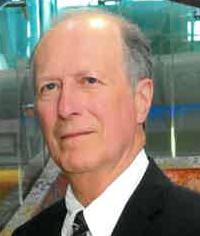New Perspectives on a 70-Years Old Problem: Kinetic Simulation Study of Landau Damping
Adolfo F.- Viñas
NASA Goddard Space Flight Center
Heliophysics Science Division
Wed, August 28, 2019 - 4:00 PM
Karl Herzfeld Auditorium of Hannan Hall - Rm 108

A 1-D electrostatic filtered Vlasov-Poisson simulation study is discussed. The transition from persisting to arrested Landau damping produced by increasing the strength of a sinusoidal perturbation on a background Vlasov-Poisson equilibrium is explored. Emphasis is placed on observed features of the electron phase-space distribution when the perturbation strength is near the transition value. A single ubiquitous waveform is found perturbing the space-averaged phase space distribution at almost any time in all of the simulations (exception is the saturation stage at the end of the arrested damping scenario). This waveform contains relatively strong, very narrow structures in velocity bracketing - the velocities at which electrons must move to traverse the dominant field mode wavelength in one of its oscillation periods and propagating with vres respectively. Local streams of electrons are found in these structures crossing the resonant velocities from low speed to high speed during Landau damping and from high speed to low speed during Landau growth. At the arrest time, when the field strength is briefly constant, these streams vanish. It is demonstrated that the expected energy transfer between electrons and field during Landau growth or damping has been visualized for the first time. No evidence is found in the phase-space distribution to support recent conjecture of a second order phase transition in the electric field evolution. While trapping is known to play a role for larger perturbation strengths, it is shown that it plays no role at any time in any of the simulations near the transition perturbation strength.
Refreshments served at 3:45 PM
If you have any questions about the Colloquium Series or would like to make a donation please contact Adrienne Black, black@cua.edu or (202) 319-5315.
